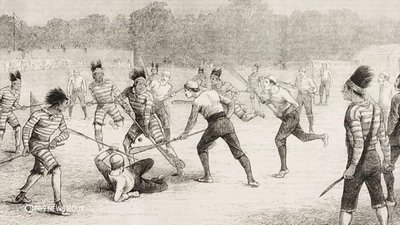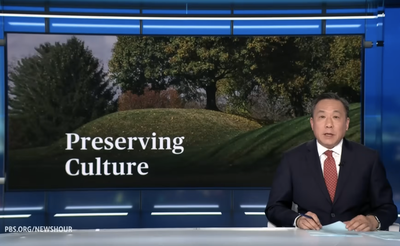Teacher's note: This story may weigh heavily on your students' minds; they likely have already come across violent and disturbing images associated with the attacks. Be sure to review all materials and check in with students as to how they are feeling. Let them know you, school counselors and administrators are there for them and are available to talk.
Summary
In an unprecedented surprise attack on Saturday (Oct. 7), thousands of militants from Gaza crossed security barriers into Israel by land, sea and air, killing scores of Israeli citizens and soldiers. More than a thousand Israelis and Palestinians are reported dead between the attack and Israel’s retaliatory airstrikes on Gaza cities. Hamas, the political organization that controls Gaza, took credit for the attack. The terrorist tactics used by Hamas included killing hundreds of outdoor concert goers, families in their homes and taking civilian hostages.
Israeli Prime Minister Benjamin Netanyahu has vowed to destroy the ability of Hamas to govern and carry out attacks, an effort he warns will be long and difficult as the death toll continues to climb in Gaza. Israel cut off food, water and power to Gaza on Monday, which threatens the lives of two million people live in Gaza, the third most densely populated area of the world (half of them children).
For a transcript of the video, click here.
UPDATE: You may want to watch the video the NewsHour produced Monday (Oct. 9) night which focuses more on Israel's reaction:
Optional: Watch this NewsHour video What the escalating Palestinian-Israeli crisis means for Middle East relations. The NewsHour speaks with Shibley Telhami, a senior fellow at the Brookings Institution’s Center for Middle East Policy and the Anwar Sadat professor for peace and development at the University of Maryland. (5m:47s)
News wrap alternative: Check out recent segments from the NewsHour, and choose the story you’re most interested in watching. You can make a Google doc copy of discussion questions that work for any of the stories here.
Warm up questions
- What events occurred on Sat. (Oct. 7) in Israel and Gaza? What else do you know about any of the events that led up to the attacks?
- Who were the key groups involved in the attacks?
- Where and when did the attacks take place?
- Why did Hamas kill innocent Israeli civilians and take others hostage as the central part of their strategy?
- How has the Israeli government reacted? What has Israeli Prime Minister Benjamin Netanyahu said in response to the attacks?
Focus questions
- How has not solving the Israeli-Palestinian conflict for so many years contributed to the atrocious acts that began over the weekend and the many other examples of violence leading up to these events? What do you think will happen in the days and weeks to come? How do you feel thinking about and seeing this level of violence?
If you are not sure about the decades-long history of the Israel-Palestinian conflict, you are by no means the exception. Do some basic research on your own or as a class to find out how past events led up to this current situation.
Start with this timeline.
2. For years, the U.S. has discussed a "two-state solution" for Israel and Palestine with no success. Netanyahu, a right-wing hardliner, has not shown any move in this direction and the international community has made little to no progress in helping to solve the Israeli-Palestinian conflict. What should the roles of the U.S. and international organizations (i.e. the United Nations) be in bringing peace to the region?
Media literacy activity:
What key questions do you have after watching the NewsHour piece?
It's imperative to view a number of sources to understand the background and current state of affairs in Israel as much as possible. Take a look at the sources below in the For More section to get started.
For More
What students can do: Be sure to understand the basic events of what took place over the weekend in Israel. Where is Israel? Where is Gaza (see map)? Make sure your sources come from a variety of news outlets. Based on time, you may want to read one or two articles and complete a See, Think, Wonder line of questioning:
See, Think, Wonder: What did you notice? What did the story make you think? What would you like to find out more about? Where would you go to learn more?
Israel vows complete siege on Gaza as it strikes the Palestinian territory after incursion by Hamas (AP News)
Israeli attack survivor describes moment Hamas militants kidnapped her husband (NewsHour)
Israel is going to war with Hamas. Here’s what to know about the group and its strategy (CNN)
Israel-Hamas war live news: Israel pummels Gaza with intense air attacks (Aljazeera)
Why did it take Israel so long to deal with Hamas's attack from Gaza? (BBC article)
(BBC video)
WATCH: Biden delivers remarks after condemning ‘appalling’ Hamas incursion in Israel(AP News via PBS NewsHour)
“Do You Hear the Bombing?”: Gazan Human Rights Lawyer Raji Sourani Describes Israeli Siege of Gaza City (Democracy Now!)
'FINISH THEM:' Nikki Haley Calls FOR WAR With Iran (Breaking Points)
The Global Context of the Hamas-Israel War (New York Times)
HISTORY: Hamas Rise To Power Previews Gaza Fight| Breaking Points (Breaking Points)
What does it really take in a person to bring peace?
If your students ask you how conflicts that have taken place for decades and involve killing on both sides so much so that there is a retaliatory seemingly unbreakable cycle, you may want to take a look at this short video featuring Ofer Cassif, member of the Israeli Knesset’s (name of Israel's government) left-wing Hadash-Ta’al coalition, in the following story by Democracy New!:
"Israel lawmaker Hamas Killed His Friend, But Knesset Member Ofer Cassif Says 'End the Occupation Now'"
After listening to Cassif's story at the start of the interview, discuss what values he holds to make it possible for him to have this level of forgiveness? Is this what it will take to bring about peace? If so, what do you think it takes to hold such values? How do you think more people could learn to forgive in this way?
Fill out this form to receive our weekly newsletter with timely lesson plans, a recap of our Daily News Lessons and community events.





